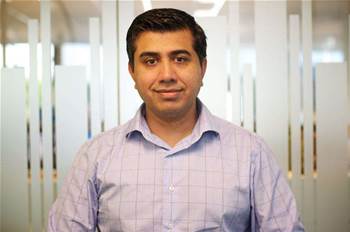Any company looking to thrive in today’s competitive world will always be on the lookout for top talent.
As Australia diversifies out of its mining-centric economy, it is essential that we create a culture of innovation in order that we offer value in a dynamic and hyper-competitive region.
There is a lot that can be done - both by companies and governments - to encourage this culture. I won’t opine today on what policies are required – I’m more interested in how we achieve front line innovation as employers. Australia and Australian Companies must attract and retain the best talent from home and abroad.
Top talent is difficult to find during both booms and recessions. But getting it right is rewarding. It is that much easier to manage other parts of your business when culture and talent has been carefully managed.
“The best way to grow your business,” it is said, “is to grow your people”.
If you believe as I do that top talent is both rare and key to our success, we must be very diligent when recruiting.
One of the most common mistakes companies make when looking for top talent is limiting these individuals by the industry they have worked in.
I am sure many of us have made this mistake or have been frustrated when others did.
For example: a typical recruitment brief for a .Net developer is “I am looking for a talented developer with three years experience in online retail and five years .Net experience”. By saying that “online retail" experience is mandatory, we might risk limiting the number of suitable applicants significantly. Had the job description asked for someone who demonstrates the soft and hard skills for the job, and not the industry specific experience, a much larger talent pool would be at your disposal.
This is a common problem and many companies are losing out on fantastic talent in an effort to help recruiters narrow the field. I have found that this issue extends through the whole spectrum of employees from the intern to the CEO.
A couple of years ago I was recruiting for a senior position and briefed the recruiter about the person I wanted. The recruiter then asked me which companies and industries he should target. To his surprise, I said I had no preference and wanted all companies or industries to be targeted. I wanted the best person for the job and not a person from the most suited industry or a rival company. Not once have I regretted my decision. Eventually we recruited someone from the energy industry where this person was frustrated in doing a job where he literally just had to keep the lights on. At his very core, this individual was looking for a company where he could innovate and work beyond the brief. I gave him a chance and have never looked back. He is now one of the many top talents in our technology team and has already made significant contributions towards growing our company.
For “top talent”, learning an industry is never the hard part. It is counter-intuitive to think we would lose out on top talent because we can’t afford for them to spend a month or more learning the specifics of our industry (especially when recruiting full time staff). I would not be where I am today if it wasn’t for my former Boss (Robin Jowett, former CTO of Fairfax Digital) who recruited me 11 years ago into an online role, without me having any online experience at the time.
I get frustrated when employers say they had to bring “industry specific talent” from overseas because there is not enough talent here in Australia. Don’t get me wrong, I am all for bringing talented people from abroad, but the reason should never be “industry specific experience”. With a bit of training, top talent learns fast and delivers greater results.
Here are things I have looked for (that worked well) when recruiting Top Talent:
- Recruit without fear for a person who is better than you (or has the potential to be). Talent has no boundaries and hiring managers should never be the bottle neck in a company. Start by hiring a person who is better than you and then tell them to hire someone better than them.
- Assess if the candidate’s motivation matches the job. Digital workers need to move fast and think on their feet. As per my energy vs online example, assessing an individual’s drive and hunger to create change is likely to prove more telling than their last employer.
- A ‘can do’ attitude. We have often heard “hire for attitude and train for skill”. I firmly believe in this. Internally at Carsales - Product and Technology we use a term called “brilliant jerks” that refers to people who are highly skilled but have a bad attitude. We specifically fear these species and never want to employ them.
- Carefully match values and behaviours of the candidate and those expected by your company. This is often referred to as cultural fit. I have successfully used behavioural interviews to assess this. It starts by defining the values/ behaviours you are recruiting for and then asking very specific questions on how the candidate has exhibited these in the past.
- Assess their potential. At university I learnt “how to learn” but when I was employed I did not use many of the hard skills learnt at university. Education increased my potential to become a fast learner. In today’s ever changing world, skills required to do the job are always changing. In my view, it is imperative to assess the candidate’s IQ and EQ as key markers of potential. Some companies do this with controversial tests and others through intelligent questioning. No matter which technique is used, testing “potential” is a must when recruiting top talent.
- Check their skills. If you are recruiting for a developer job, it is unlikely you will interview someone with experience as a Medical Doctor. Skills are important and serve in most cases as a pre-requisite to interviewing someone. Sometimes it may be a “test”, in other cases a “few questions” and in yet other cases it might be a coding challenge. If you need to make small compromises on skills such as specific experience with certain tools to obtain top talent then in my view it is always worth it.
Above all, we must not let our biases (like age, gender, orientation, race or industry specific experience etc.) get in the way of recruiting top talent.
We must respect Talent for what it is.
Ajay Bhatia is the CIO of carsales.com.au.



























